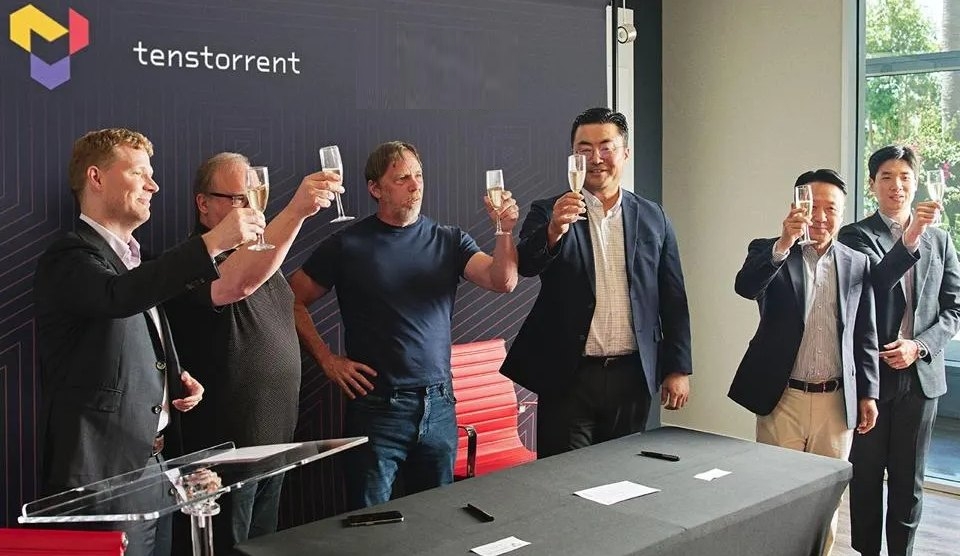AI chip startup Tenstorrent in talks to raise $800M in funding at a $3.2B valuation led by Fidelity

Toronto-based AI startup Tenstorrent is drawing investor attention once again as the race for AI compute intensifies. The company is reportedly in advanced talks to raise $800 million in new funding at a valuation close to $3 billion, with Fidelity Management & Research leading the discussions, according to an exclusive report from The Information.
If finalized at the reported pre-money mark of roughly $3.2 billion, the round would lift Tenstorrent above its $2.6 billion valuation from its nearly $700 million Series D in December 2024. The speed of this jump underscores what many investors are signaling across the sector: the market is hungry for alternatives to Nvidia’s dominance.
“Chip startup Tenstorrent has been in talks to raise at least $800 million in a deal led by current investor Fidelity Management, according to two people with direct knowledge of the talks. The investment would value the Toronto-based firm at around $3.2 billion before the investment,” The Information reported.
Founded in 2016 by Ljubisa Bajic, Milos Trajkovic, and Ivan Hamer, Tenstorrent began as a small engineering-led effort before pulling in one of the most influential chip architects of the last two decades. Jim Keller, whose fingerprints are on major CPU and neural engine programs at Apple, Tesla, AMD, and Intel, joined the company as CTO in 2020 and took over as CEO earlier this year. Keller has spoken publicly about the structural disadvantages new chipmakers face against Nvidia. “You can’t beat Nvidia if you use HBM,” he said in a Bloomberg interview last December, pointing to prohibitive memory costs that box out most competitors.
Tenstorrent Nears $3.2B Valuation as Fidelity Doubles Down on the Nvidia Challenger
Tenstorrent’s approach breaks from that model. The company has been building high-performance processors using RISC-V — an open instruction set architecture that has grown in credibility across the semiconductor community. RISC-V offers freedom from licensing costs associated with x86 and Arm, which is one reason the design has gained traction among research labs, startups, and some automotive teams. Tenstorrent’s processors, including its Grayskull and Wormhole lines, target both cloud training and edge inference. The company has committed to a twice-yearly hardware release pace, an unusual tempo in a sector where new silicon can take years to ship.
Its strategy isn’t dogmatic, though. While some of its chips rely on RISC-V, the upcoming Samsung-manufactured Quasar product does not. This flexibility reflects a reality well understood by engineers: different customers have different requirements, and no single instruction set solves every problem. This nuance has helped Tenstorrent carve a technically credible position in an area where developers care deeply about interoperability and cost.
The company’s investor base has followed that effort closely. Fidelity first backed Tenstorrent in 2021 with a $200 million Series C that pushed the company to unicorn status. In 2023, a $100 million convertible note brought in strategic support from Hyundai Motor Group and Samsung Catalyst Fund, which signaled early confidence from major players examining AI integration in cars and consumer electronics. By December 2024, Tenstorrent closed an oversubscribed Series D co-led by Samsung Securities and AFW Partners. Bloomberg reported the round at roughly $700 million, with participation from Bezos Expeditions, LG Electronics, Baillie Gifford, and the Healthcare of Ontario Pension Plan. In total, Tenstorrent has raised more than $1.18 billion across 10 rounds.
The company has also secured nearly $150 million in customer contracts. These include agreements with Samsung for manufacturing and Hyundai for automotive AI systems, giving the company a mix of revenue sources that extend beyond traditional cloud providers. Tenstorrent has expanded across Toronto, Austin, Silicon Valley, Belgrade, Tokyo, Bangalore, Singapore, and Seoul to support growing design and engineering demands.
The broader context strengthens the significance of this potential raise. Nvidia now holds over 80% of the AI accelerator market and regularly posts quarterly data center revenue exceeding $30 billion. That scale is precisely what makes the emergence of credible challengers so rare. Still, investor interest has picked up across the board. Lightmatter reached a $4.4 billion valuation after a $400 million Series D last October, and Celestial AI raised $175 million earlier in 2024. These deals reflect a shared belief across venture firms and strategic investors that the AI compute stack is far from settled.
Tenstorrent’s pitch has resonated with developers wary of Nvidia’s “walled garden,” as some describe it. By avoiding HBM in favor of standard DDR memory and embracing modularity, the company aims to offer lower costs and more flexibility — attributes that remain meaningful as AI training budgets balloon. Yet Tenstorrent’s challenges are real. The company’s revenue remains modest relative to Nvidia’s scale, and its chip production relies on TSMC and Samsung, two companies deeply exposed to geopolitical pressures and supply chain volatility.
If the new Fidelity-led round closes, Tenstorrent would have the capital to accelerate its next-gen hardware roadmap, build new training server designs, and expand its IP licensing strategy for companies designing custom silicon. The AI chip sector is projected to hit $83 billion in sales by 2027, a steep climb from $5.7 billion in 2018, and that trajectory continues to pull new entrants into the race.
Tenstorrent is betting that openness — in design, architecture, and cost structure — can create an alternative path for developers who want out of Nvidia’s gravitational pull. Whether that bet pays off is a question the entire industry is watching closely. But in a moment where compute has become the bottleneck for AI progress, credible competitors matter, and Tenstorrent has made itself part of that conversation.




